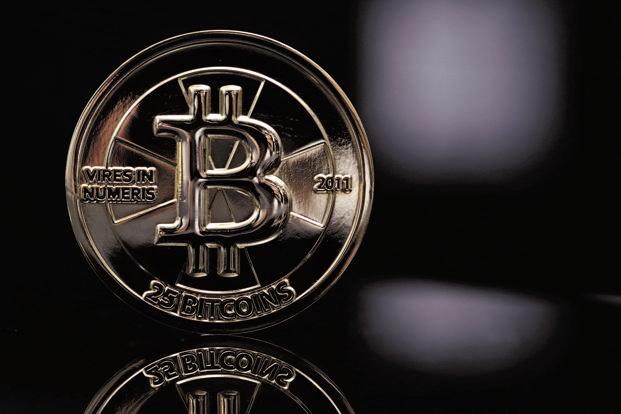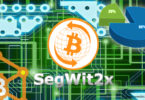Bitcoin Unlimited and Segregated Witness are locked in row over how to scale up bitcoin to handle more transactions which may split the cryptocurrency
If you trade in bitcoins, or even are a bitcoin enthusiast, it’s unlikely that you would have missed the raging debate around the cryptocurrency. Known as the bitcoin “fork”, the controversy potentially threatens to split the bitcoin currency, whose price is currently around $1,200, into two.
For the uninitiated, there are two factions at the heart of the debate, which is primarily about how to scale up the bitcoin to handle more transactions. The two current camps are: Bitcoin Unlimited and Segregated Witness (SegWit). Bitcoin Unlimited aims to remove the block size limit altogether, thereby allowing the miners to reach a consensus on their own. SegWit offers a moderate increase of the block size to up to 4 megabytes (MB), moving some non-critical data out of the blocks.
The reason: Bitcoin currently has a 1MB block size limit. This implies that, on average, a network bitcoin can only process 1MB of transaction data every 10 minutes—about seven transactions per second as compared to the thousands of transactions per second that credit card firm Visa can process. The problem first surfaced around 2014-15, and bitcoin users are now increasingly experiencing long wait times as the mempool, or the buffer of yet-unconfirmed transactions, is showing more spikes.
Brock Pierce, founder and managing partner at Blockchain Capital and chairman of the Bitcoin Foundation, believes that bitcoin has the “high class” problem of experiencing rapid growth. “Users and entrepreneurs building new business models off the blockchain means that there are competing interests on how best to scale the network. Linux, also an open source software project, had similar growing pains. It is possible that Bitcoin will fork at some point. The question is whether or not it’ll be a contentious fork. This process is a good thing in the long term, though potentially disruptive in the short term,” he said.
Pointing out that “there have been multiple attempts to alter bitcoin away from the core developers that have created bitcoin as we know it today (Bitcoin Classic etc.)”, Pierce said, “To date, caution regarding a contentious hard fork has prevailed and bitcoin has thrived. If it (the split) were to happen, we may see two currencies, though I suspect one would be the dominant currency/chain.”
Earlier attempts at fixing this problem comprised the BIP 100 and BIP 101 proposals—BIP stands for bitcoin improvement proposal. They were introduced in 2015 by Bitcoin Core developers Jeff Garzik and Gavin Andresen, respectively. BIP 100 was about making miners decide the block size limit while BIP 101 was a one-time increase from 1MB to 8MB. Both are known as hard-fork solutions, which means that had they been implemented, older versions of bitcoin software would become incompatible with the new network.
According to Cointelegraph.com, the abolition of the block size limit proposed by Bitcoin Unlimited could lead to an “uncontrolled Blockchain bloat”. Currently, the size of the entire blockchain exceeds 100 gigabytes.
If the block size limit is increased, the blockchain could grow to several petabytes, if not more, which “would lead to increased centralization of Bitcoin; only big companies would be able to afford the storage space, computing power and bandwidth necessary to process such huge amounts of data, phasing small-scale node operators out of the network. That runs contrary to the very idea of Bitcoin as the money governed by each of its users”, the article in Cointelegraph.com explains. Similar with SegWit, where the limit will be reached again, and the capacity will have to be increased.
At a roundtable held in February 2016 in Hong Kong, representatives of Bitcoin Core, the authors of SegWit, and several major mining companies agreed to move forward with “a safe hard-fork based on the improvements in SegWit”, proposing an increase in the block size limit to 2MB “with the total size no more than 4MB” but the bitcoin community refused to adopt it, and the stalemate continues.
Benson Samuel, co-founder and chief technology officer and co-founder of Secure Bitcoin Traders Pvt. Ltd that runs trading platform Coinsecure.in, says while Indian users have been concerned about the fork, “there is far less discussion in the community in India compared to outside. Since a huge number of users in India store their funds on exchanges and Web wallets, they expect to have a more seamless experience as the service operators themselves should be able to take care of some of the steps involved in the fork. The chances are slim for a majority to vote into a hard fork like Bitcoin Unlimited at this moment, however soft forks like Segregated Witness seem a lot more practical to implement on a decentralized distributed network,” he adds.
The bitcoin code was first released on 9 January 2009, by a person who assumed the name, Satoshi Nakamoto. Ever since, the digital currency has been adopted for everything from international money transfers to online narco-trafficking.
If you have installed a bitcoin wallet on your computer or mobile phone, it will generate your first bitcoin address and you can create more whenever you need one. You can disclose your addresses to your friends so that they can pay you or vice versa. Bitcoin users can buy and sell the currency among themselves. A shared public ledger called the “block chain” contains every transaction ever processed, allowing a user’s computer to verify the validity of each transaction of this virtual currency. The authenticity of each transaction is protected by a digital signature corresponding to the sender’s address, allowing users to have full control over sending bitcoins from their own bitcoin addresses. Hence, the digital money is also known as a “cryptocurrency”.
Anyone can process transactions using the computing power of specialized hardware and earn a reward in bitcoins for this service—a process known as mining. Japan may soon become the first country to recognize bitcoins as legal tender. Some countries such as China could go a step further to issue their own version of the digital currency.
In India, the Reserve Bank of India has not declared bitcoin illegal but simply cautioned users, holders and traders of virtual currencies, about the potential financial, operational, legal and security-related risks that they are exposing themselves to.
On 27 February, bitcoin start-ups Zebpay, Unocoin, Coinsecure and SearchTrade jointly launched the Digital Asset and Blockchain Foundation of India (DABFI) for the “orderly and transparent growth of virtual currency market”. DABFI will lay down self-regulatory regimes for trading of bitcoins and other blockchain-based digital assets.
Source: http://www.livemint.com/Industry/Ad3mtorzEzQYQ1Txcy6TRL/Bitcoins-existential-crisis.html







